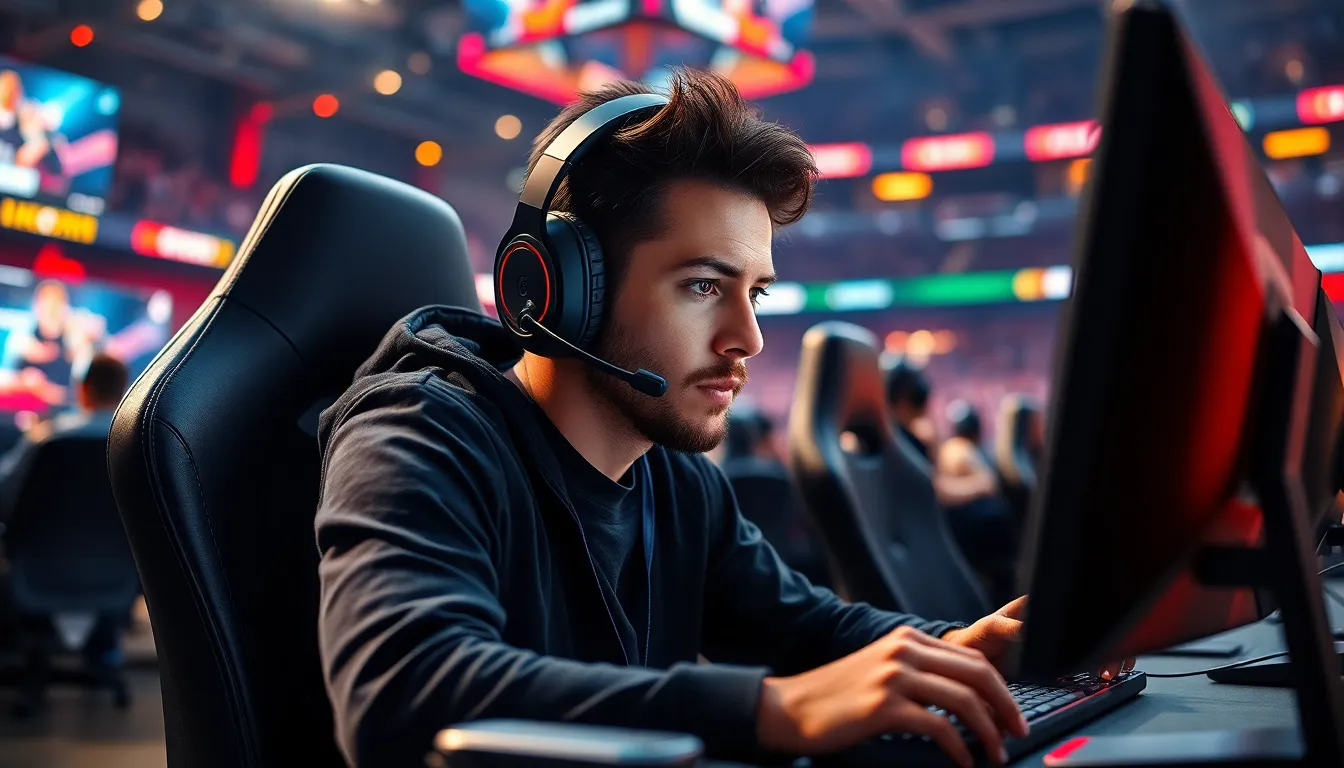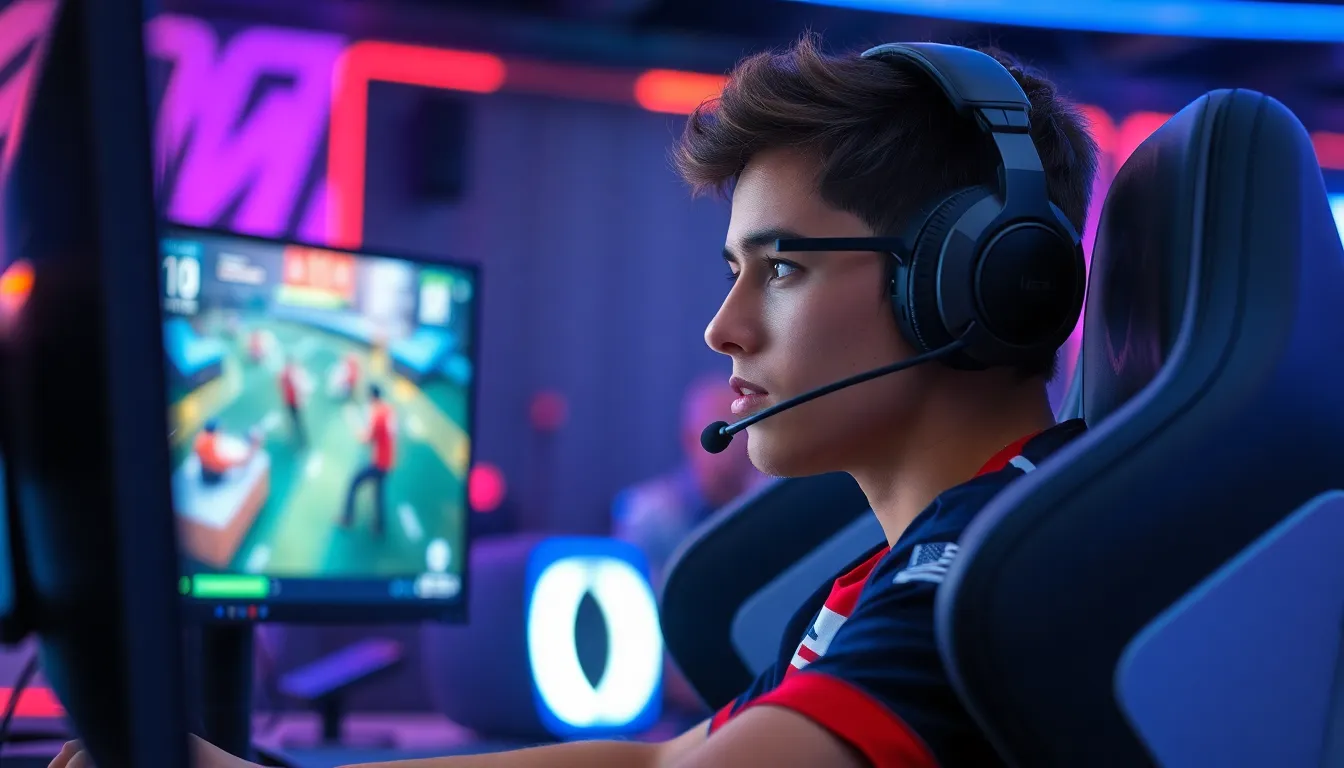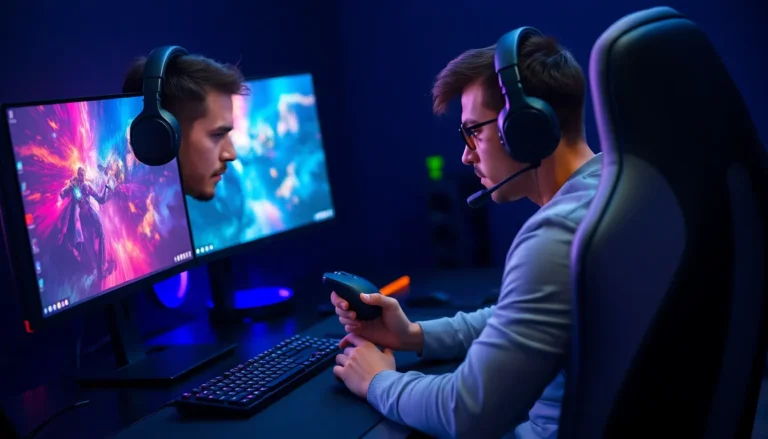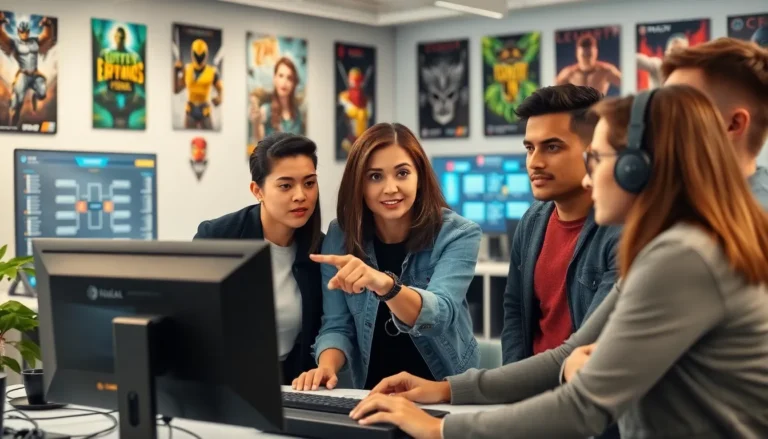In the fast-paced world of esports, mental fortitude is as crucial as technical skill. As competitive gaming continues to rise in popularity, understanding the psychological aspects of performance becomes essential for players and teams. Esport psychology delves into the mental strategies and emotional resilience needed to excel in high-stakes environments, where split-second decisions can determine victory or defeat.
Players often face intense pressure, making it vital to cultivate a strong mindset. Techniques such as visualization, focus training, and stress management play a significant role in enhancing performance. By exploring the principles of esport psychology, gamers can unlock their full potential, gaining a competitive edge in this dynamic landscape.
Table of Contents
ToggleUnderstanding Esport Psychology
Esport psychology examines the mental processes that affect performance in competitive gaming. It encompasses various factors such as motivation, focus, and emotional regulation, all critical for success in high-stakes environments.
Definition and Scope
Esport psychology encompasses the study of how psychological factors influence performance in gaming. It includes motivation theories, cognitive-behavioral approaches, and emotional regulation strategies tailored for esports athletes. The scope spans individual player psychology, team dynamics, and even the impact of fan engagement on player performance. Understanding these elements helps players and coaches develop tailored strategies that enhance mental resilience and optimize performance.
Importance in Competitive Gaming
Mental aspects play a crucial role in competitive gaming performance. Players often confront intense pressure that can hinder their ability to execute technical skills. Utilizing psychological strategies fosters emotional resilience, enabling players to maintain focus and composure during matches. Moreover, optimizing mental readiness improves decision-making processes, enhances teamwork, and increases overall success rates. By prioritizing esport psychology, teams gain a competitive edge, fostering environments that nurture both mental and technical skills, essential for thriving in the arena of esports.
Key Concepts in Esport Psychology

Esport psychology includes various elements crucial for enhancing player performance and overall team dynamics. Understanding these key concepts helps in developing effective strategies tailored for success in competitive gaming.
Motivation and Performance
Motivation significantly influences a player’s performance in esports. Intrinsic motivation, defined as the drive stemming from personal satisfaction, often leads to higher engagement and better results. Extrinsic motivation, such as rewards and recognition, can also spur players towards improved performance. Research indicates that maintaining a balance between both types enhances perseverance through challenges. Players should set specific, achievable goals to sustain motivation and create a clear path for improvement. Additionally, fostering a supportive team environment reinforces motivation, encouraging collaboration and shared success.
Focus and Concentration
Focus and concentration are essential for high-level esports performance. Players must maintain intense concentration during matches to make quick decisions and execute strategies effectively. Techniques such as mindfulness training and cognitive exercises improve a player’s ability to stay present in the game. Distraction management strategies include identifying triggers that disrupt focus and implementing coping mechanisms to minimize their impact. Studies show that regular practice in sustaining attention can enhance overall performance. Developing routines before and during gameplay can also help players achieve optimal concentration levels.
Common Psychological Challenges
Esport athletes face various psychological challenges that can significantly impact their performance. Addressing these issues is crucial for maintaining optimal mental health and achieving competitive success.
Anxiety and Stress Management
Anxiety manifests in many forms, including pre-match nerves and performance anxiety. Players often experience heightened stress levels during critical moments, which can hinder their decision-making abilities. Effective stress management techniques, such as deep breathing exercises, progressive muscle relaxation, and visualization, help players maintain composure in high-pressure situations. Cognitive-behavioral strategies can also assist in reframing negative thoughts, enabling players to focus on their strategies rather than external pressures. Establishing a support system with coaches and fellow players enhances emotional resilience and fosters a constructive atmosphere for dealing with anxiety.
Burnout and Overtraining
Burnout is a common phenomenon among esports competitors, manifesting as fatigue, decreased motivation, and diminished performance. Overtraining, often characterized by excessive practice without adequate recovery, leads to physical and mental exhaustion. Players should monitor their training loads and implement regular breaks to prevent burnout. Incorporating recovery strategies, such as proper nutrition, hydration, and sufficient sleep, plays a vital role in maintaining both mental and physical health. Participating in recreational activities outside of gaming can also provide a healthy balance, allowing players to recharge and reconnect with their passion for the sport.
Techniques for Improving Mental Strength
Mental strength in esports requires specific techniques to enhance performance under pressure. Players can utilize various strategies to build resilience and improve their overall mental game.
Visualization Techniques
Visualization techniques enable players to mentally rehearse their performances, enhancing confidence and focus. By creating vivid mental images of successful plays and game scenarios, they can prime their minds for optimal execution during matches. Players should practice visualization regularly, ideally in a quiet space, spending 10-15 minutes imagining key moments, strategies, and desired outcomes. Research indicates that this method can significantly improve both individual and team performance, translating mental imagery into real-world effectiveness.
Mindfulness and Relaxation Strategies
Mindfulness and relaxation strategies foster emotional regulation and clarity during competitive play. Techniques like deep breathing, progressive muscle relaxation, and guided meditation support players in managing anxiety and stress. Incorporating daily mindfulness exercises can enhance focus and maintain composure in challenging situations. Players should allocate 5-10 minutes daily to practice these techniques, thereby sharpening their ability to remain present during matches. Studies show that regular mindfulness practice can lead to improved cognitive flexibility and decision-making skills, essential attributes for success in esports.
Esport psychology plays a pivotal role in shaping the success of players and teams. By prioritizing mental resilience and employing effective strategies, athletes can significantly enhance their performance in high-pressure scenarios. Techniques like visualization and mindfulness not only improve focus but also equip players to handle stress and anxiety.
As the competitive gaming landscape continues to evolve, understanding the psychological facets becomes increasingly vital. Coaches and players alike must embrace these concepts to foster a culture that values both mental and technical excellence. Ultimately, investing in esport psychology can lead to a more fulfilling and successful gaming experience.





